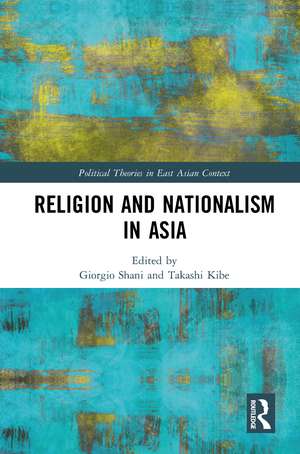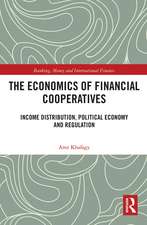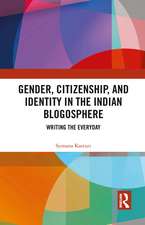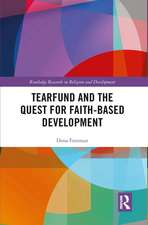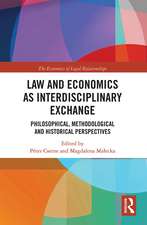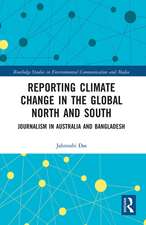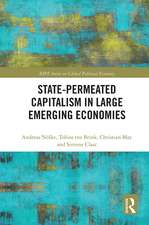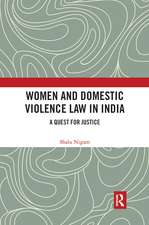Religion and Nationalism in Asia: Political Theories in East Asian Context
Editat de Giorgio Shani, Takashi Kibeen Limba Engleză Paperback – apr 2021
Addressing empirical, analytical, and normative questions, it analyses selected case studies from across Asia, including China, India, Iraq, Japan, Pakistan, the Philippines and Sri Lanka and compares the differences and commonalities between the diverse configurations of nationalism and religion across the continent. It then goes on to explain reasons for the regional religious resurgence and asks, is the nation-state model, aligned with secularism, suitable for the region? Exploring the two interrelated issues of legacies and possibilities, this book also examines the relationship between nationalism and modernity, identifying possible and desirable trajectories which go beyond existing configurations of nationalism and religion.
Bringing together a stellar line up of contributors in the field, Religion and Nationalism in Asia will be a valuable resource for students and scholars of Asian religion and politics as well as sociology, ethnicity, nationalism and comparative politics.
| Toate formatele și edițiile | Preț | Express |
|---|---|---|
| Paperback (1) | 385.44 lei 6-8 săpt. | |
| Taylor & Francis – apr 2021 | 385.44 lei 6-8 săpt. | |
| Hardback (1) | 1003.99 lei 6-8 săpt. | |
| Taylor & Francis – 18 sep 2019 | 1003.99 lei 6-8 săpt. |
Preț: 385.44 lei
Nou
Puncte Express: 578
Preț estimativ în valută:
73.75€ • 77.21$ • 61.03£
73.75€ • 77.21$ • 61.03£
Carte tipărită la comandă
Livrare economică 08-22 aprilie
Preluare comenzi: 021 569.72.76
Specificații
ISBN-13: 9780367777425
ISBN-10: 0367777428
Pagini: 214
Dimensiuni: 156 x 234 x 12 mm
Greutate: 0.36 kg
Ediția:1
Editura: Taylor & Francis
Colecția Routledge
Seria Political Theories in East Asian Context
Locul publicării:Oxford, United Kingdom
ISBN-10: 0367777428
Pagini: 214
Dimensiuni: 156 x 234 x 12 mm
Greutate: 0.36 kg
Ediția:1
Editura: Taylor & Francis
Colecția Routledge
Seria Political Theories in East Asian Context
Locul publicării:Oxford, United Kingdom
Public țintă
Postgraduate and UndergraduateCuprins
Introduction: Legacies and Possibilities 1. Tagore and the Conception of Critical Nationalism 2. Midnight’s Children: Religion and Nationalism in South Asia 3. Articulations of Religiously-Motivated Nationalism within Philippine Catholicism: A Critical Assessment 4. Reconsidering the Relation between ‘Sectarianism’ and Nationalism in the Middle East 5. The Irony of Secular Nation-Building in Japanese Modernity: Inoue Kowashi and Fukuzawa Yukichi 6. Buddhism, Cosmology, and Great East Asian Co-prosperity Area: Multiculturalism and Nationalism in the Pre-war period Japan 7. Political modernity in East Asia: Religion, nationalism and subversion of imperialism 8. Religious Nationalism with Non-domination: Ahn Changho's Cosmopolitan Patriotis 9. The Structural Problem of Religious Freedom in China: Towards a Confucian-Christian Synthesis 10. Augustine’s Critique of Religious Identity and Its Implications for the Chinese Church 11. Post-Chinese Reconnections through Religion: Buddhism, Christianity, and Confucianism 12. Conclusion
Notă biografică
Giorgio Shani is Chair in Politics and International Studies and Director of the Rotary Peace Center at International Christian University, Japan. He is author of Sikh Nationalism and Identity in a Global Age (Routledge 2008) and Religion, Identity and Human Security (Routledge 2014).
Takashi Kibe is Professor of Political Science at International Christian University, Japan. Among his publications are Martin Luther's Political Thought (in Japanese, 2000), and Political Theory of Equality (in Japanese, 2015).
Takashi Kibe is Professor of Political Science at International Christian University, Japan. Among his publications are Martin Luther's Political Thought (in Japanese, 2000), and Political Theory of Equality (in Japanese, 2015).
Recenzii
"The editors are to be congratulated for assembling a multi-disciplinary team of first-rate Asian scholars. In interrogating many of the assumptions underpinning the discussion of religious politics, the book should have a broad appeal across the social sciences."
John Hutchinson, Nations and Nationalism
John Hutchinson, Nations and Nationalism
Descriere
This book re-examines the relationship between religion and nationalism in a contemporary Asian context, with a focus on East, South and South East Asia.
